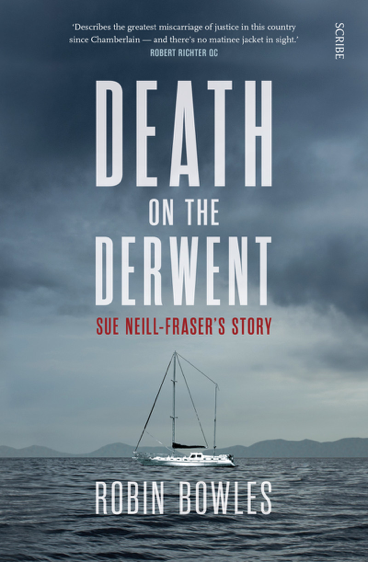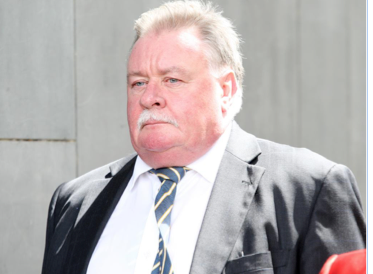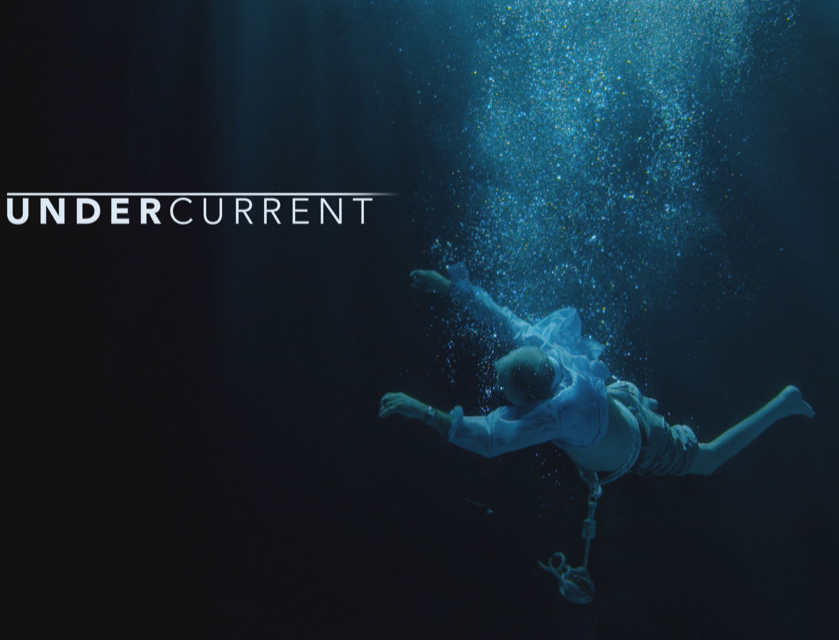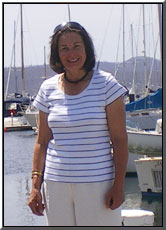Andrew L. Urban
Death on the Derwent – by Robin Bowles
Scribe Publications, February 19, 2019, 384 pp, $32.99
ISBN:9781925713176
Robin Bowles has been writing crime books for 20 years. She lived and worked in Tasmania from 1977 to 1987; her parents lived there and children & grandchildren still live there. Her connection to the place is deep. And the man for whose 2009 Australia Day murder Sue Neill-Fraser was jailed for 23 years, Bob Chappell, once saved Robin’s widowed mother’s life after a bad fall at her home. So her connection to this story about the case is also deep.
These connections matter as a backdrop to the book because the case reflects on Tasmania itself – and she knows the place, the people, The Establishment … the people who really run Tasmania as a group, who share schooling and university paths, clubs and businesses. And attitudes, no doubt.
 Bowles begins with an overview of the people involved, the families and some friends. It’s a readable and engaging picture of middle class Tasmanians. Into this sedate milieu lands a mystery when Bob Chappell goes missing overnight from the yacht Four Winds, recently purchased by the couple. She traces the police investigation – thoroughly discredited by Eve Ash’s award winning doco Shadow of Doubt (2013), by the two previous books on this subject, my own Murder by the Prosecution (Wilkinson Publishing, Sept. 2018) and Colin McLaren’s Southern Justice (Hachette, Jan. 2019) – and the error-filled, evidence-free trial. Bowles has had enough experience observing trials to spot the tricks and tactics used to pursue a murder conviction – even without a body.
Bowles begins with an overview of the people involved, the families and some friends. It’s a readable and engaging picture of middle class Tasmanians. Into this sedate milieu lands a mystery when Bob Chappell goes missing overnight from the yacht Four Winds, recently purchased by the couple. She traces the police investigation – thoroughly discredited by Eve Ash’s award winning doco Shadow of Doubt (2013), by the two previous books on this subject, my own Murder by the Prosecution (Wilkinson Publishing, Sept. 2018) and Colin McLaren’s Southern Justice (Hachette, Jan. 2019) – and the error-filled, evidence-free trial. Bowles has had enough experience observing trials to spot the tricks and tactics used to pursue a murder conviction – even without a body.
There are plenty of excerpts from the trial transcript to demonstrate how the jury was led to accept the speculation (“theory” as the judge put it) by the prosecution that Neill-Fraser was angry with Chappell – angry and annoyed enough to kill him. It may seem oddly off kilter and hard to believe from a distance in time and place, but inside that courtroom, the prosecution’s presentation of the case was perhaps even more important than the substance.
Bowles records a little known event that took place during the trial, in which Neill-Fraser’s son in law, Mark Bowles (no relation to Robin) confronts the prosecutor, DPP Tim Ellis QC, about Phillip Triffitt, the criminal who had given evidence against Neill-Fraser. It went like this:
When Triffitt left the courtroom, Tim Ellis followed him. Mark Bowles, Sarah’s husband, noticed this and decided to tag along, too, as this was the first time Ellis had followed a witness out of court. As Mark reached the court foyer, he saw Triffitt, followed by Ellis, walking down the corridor off the foyer that leads to the DPP’s robing rooms and a small office allocated to the Crown. Puzzled by this, Mark waited until Ellis returned, as Mark knew he must, eventually. Having been thrust into the totally unaccustomed situation of his mother-in-law standing trial for murder and Triffitt, a known criminal, who had threatened Sue in the past, seemingly making his way to the Crown office, Mark wanted to find out what was going on.
When Ellis reappeared, without Triffitt, Mark confronted him.

Tim Ellis SC, former DPP of Tasmania
‘I want you to know, that man has threatened my family,’ he said. ‘If anything happens to any of us, I’ll hold you responsible.’
Ellis was affronted. ‘You can’t threaten me,’ he told Mark. ‘I’m an officer of the court.’ But Mark stood his ground. He’s a quiet young man, but my guess is that he’s one of those ‘still waters’ blokes. Ellis brushed past him and returned to the fray, and Mark went back to his seat in court.
Rightly, Bowles gives an extensive account of the other key witness, the then homeless 15 year old Meaghan Vass, whose DNA was discovered on the deck of the Four Winds. When it was discovered she had lied to the court about her whereabouts at the relevant time, defence counsel wanted to recall her. Ellis opposed the application and the judge ruled against it, saying:
The question is whether the possibility of her giving new evidence of any relevance would warrant her being recalled and the time and inconvenience taken to get her back. I’m very conscious of the fact that this is a murder trial and you can’t have a more serious charge. But the question of just where Meaghan Vass was and what she did on the night of the 26 January seems to be peripheral when her version of events is unshakably, or apparently unshakably, that she did not go onto the Four Winds, that she didn’t go to the slip yard in Goodwood, and that she didn’t go to Constitution Dock at or about the time that the boat was there. In my view, the prospect of Meaghan Vass giving significant evidence if recalled is so slight as not to warrant the time taken to recall her. Having regard to how significant her evidence might be and how likely it is that she might say something of any relevance at all I think we’d be wasting time and that there’s no realistic prospect of it making any significant difference if she were recalled.
DNA is the most powerful investigative tool available to the legal system. As Bowles says in the book, this was a bizarre, inexplicable ruling. But that’s just one of them and part of the reason why there are books, a film and TV reports about the case.  (Undercurrent, Seven Network, also by Eve Ash, went to air on the mainland from January 30, just a couple of weeks before Death on the Derwent hit the bookshops.)
(Undercurrent, Seven Network, also by Eve Ash, went to air on the mainland from January 30, just a couple of weeks before Death on the Derwent hit the bookshops.)
My favourite section of the book is Bowles’ detailed reporting on her investigations and interviews with ‘persons of interest’ during the 2018 hearings seeking leave to appeal, in which she also recounts proceedings, interspersed with her thoughts, like a running commentary.
The investigation, the trial, the failed appeal and the refusal of the High Court to hear her case were not the only aspects of this carnage. People supporting Neill-Fraser have also suffered, from lawyer Barbara Etter to solicitor Jeff Thompson, Eve Ash, Colin McLaren … all to stave off the attack on the legal Establishment’s terrible collective mistake.

Sue Neill-Fraser, Australia Day 2009
In a thorough examination of the case itself and the surrounding consequences, Bowles gives a full and clear picture of how this legal disaster has divided the community, condemned Tasmania’s legal system, fired up the media and showed up the politicians as helpless (useless?) bystanders to injustice in their own front yard – with the exception of Andrew Wilkie who alone spoke up. And, like McLaren’s book, Bowles’ book upends the case against Sue Neill-Fraser while indicting the police and the DPP’s office for obstructing justice.

I am extremely concerned for the SAFETY of Ms Meghan Vass. She needs to be put somewhere VERY SAFE, (now!) How would you feel if you witnessed a murder.
She is more brave than being given credit for. (and if I were her I would be VERY scared).
Someone who cares – PLEASE see that she is made safe.
She has recanted her affidavit 12 days ago. She needs protection from those who pressured her into providing false affidavits.
I simply don’t understand why the concerns (expressed long ago) about the safety of the Sue Neill-Fraser conviction appear to fall on deaf ears in Tasmania – eminent experts, mostly Q.C’s (Robert Richter (Vic), Chester Porter (NSW), Tom Percy (WA), Stuart Tipple (NSW) have all publicly expressed their views that this conviction is unsafe. Not possibly unsafe; UNSAFE. Does this not warrant urgent attention?
Where is the Tasmanian Premier, the Tasmanian Attorney General, the Tasmanian Office of the DPP? Why is nobody in Tasmania appearing to listen to the advice of these experts? I can only come to one sad and unpalatable conclusion……read the court transcripts, read the numerous articles in reputable national newspapers and magazines, view the several television segments,view the documentaries by Eve Ash, read the books written by Andrew Urban, Colin McLaren and Robin Bowles …….the longer it goes on the more farcical it becomes, in my view.
I am following every aspect of this case and I recommend the way it has been told by doing it in a 6 part series (Undercurrent, Ch 7); this is the best way to weigh up the details. So far I do think there is a miscarriage of Justice and am amazed that our belief in DNA is not applied in this case.